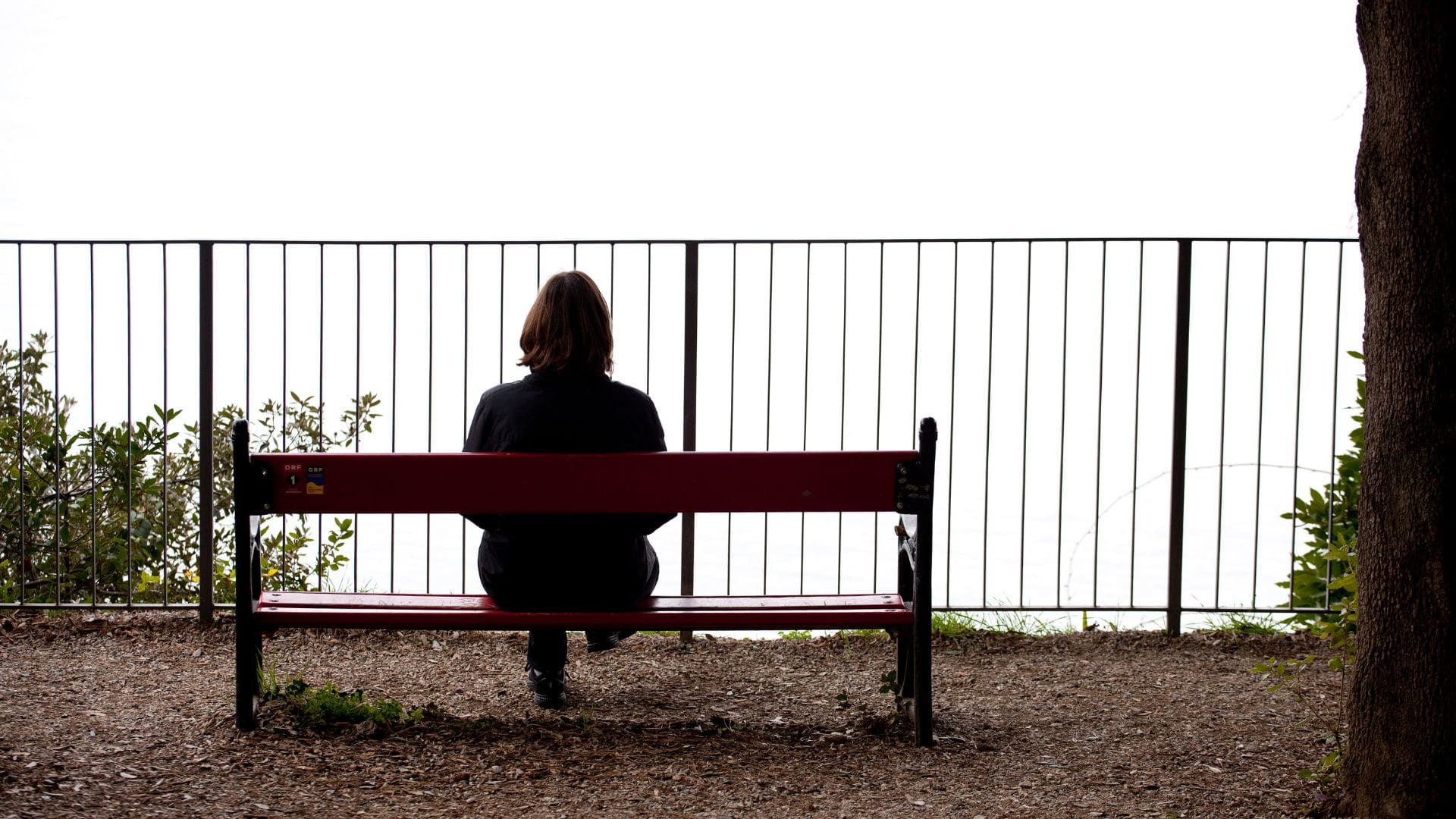Not having people around us can feel more difficult at Christmas when there are lots of images of families and friends together. Even when we have people around us, we might feel lonely. This may be because we feel like we have to hide our feelings or act differently around some people.
You could feel excluded from Christmas festivities if you struggle with mental or physical health issues. You might also feel this way if you’re a carer.
Alternatively, it could be lonely if you have to spend Christmas in a care home or hospital. Particularly if others around you have been able to leave for Christmas or have people visit.
At Christmas, we may feel forced to see people or do things that we don’t want to. It can be harder at this time of year to avoid difficult or upsetting situations.
Signs or symptoms of loneliness
For instance, you may:
- get nervous about or avoid going to social events
- change your daily routines, like stop cooking for yourself, caring about your appearance or getting up early
- find it difficult to get to sleep or stay asleep
What causes loneliness?
Our loneliness can stem from a variety of factors; sometimes there is no clear explanation for it; it is simply how we feel.
Loneliness can also result from other life changes, particularly ones that include moving away from home that could make us more socially isolated. These changes include:
- Experiencing a bereavement
- Going through a relationship break-up
- Retirement
- Changing jobs
- Starting at university
- Experiencing mental health problems
- Becoming a parent
- Moving to a new area or country without family, friends or community networks.
You may feel lonely at certain times of the year. For example, around holidays like Christmas, Ramadan or Valentine’s day.
Certain people may be more susceptible to loneliness than others, according to research.
For example, if you:
- Have no friends or family
- Are estranged from your family
- Are a single parent or care for someone else and find it hard to maintain a social life
- Belong to minority group and live in an area where there aren’t many people with a similar background to you
- Are excluded from social activities because of mobility problems
- Don’t have much money for certain social activities
- Are shielding because you’re at risk of serious illness from COVID-19 or other conditions
- Experience discrimination and stigma because of a disability or long-term health problem. For example, mental health problems
- Experience discrimination and stigma because of your gender, race or your gender or sexual identity
- Have experienced sexual or physical abuse which may mean you find it harder to form close relationships with other people.
Is loneliness a mental health problem?
It is not a mental health issue to feel lonely. But loneliness can be worsened by mental health issues. For instance, in the event that your mental health is suffering, you might:
- Avoid social events and activities you usually enjoy
- Have low self-esteem
- Find it hard to try new things and worry about engaging with others
- Find it difficult to speak to people about how you’re feeling, for fear of stigma or not being understood
- Feel like you could be a burden to others
- Feel overwhelmed in busy public places, or at work events and parties
Your mental health may suffer if you experience loneliness, particularly if it lasts for a long time.
Some research suggests loneliness may make people more stressed. It’s also linked to a higher chance of developing specific mental health issues. Depression, anxiety, low self-esteem, and sleep issues are a few examples.
Loneliness and money
Due to the cost of living crisis, everyone is struggling with money at the moment. This may have an impact on how often we can see other people. This can affect our wellbeing and how lonely we feel.
If you can’t afford the things you need, help is out there. Mind has some helpful information on money and mental health.
Tips on dealing with loneliness
-
Keep in touch with those around you
Take the time to talk to friends and family. Sometimes a friendly chat can make such a big difference. You could choose to meet up in person, or chat on the phone, via video calls or on social media, all contact can help remind you that you are not alone.
Make sure to check in regularly – most of us love hearing from people we have lost touch with. Creating a daily routine of checking in with others and being more social can be good, as it can make it easier to reach out at the time you feel lonely.
Messaging old friends or colleagues or setting up a group chat on a messaging app like WhatsApp or Messenger may help them and you feel more connected.
-
Join a group
Find a group you have shared interests with, it’s a great way to make friends and make connections. Think of some activities you might want to try and then look for some clubs or groups centred around this.
By mixing with other people, they may be able to introduce you to a group they might belong too. This could be about anything, from gaming and singing to cooking or sport. Also remember to be friendly to newcomers and try to involve others in the conversation, especially those who may lack confidence.
-
Do things you enjoy
Doing things you love and enjoy can stop you thinking about feeling lonely. Spend time outside, do some exercise, listen to podcasts. These can all help boost your mood and make you feel happier.
-
Share your feelings
Being able to talk to other people about how you are feeling can really help. Hearing a familiar voice and seeing a friendly face can stop you feeling isolated. Do not compare yourself to others though. Some people only share the good things happening on social media, so don’t compare yourself to anyone else. We also never know what others are going through.
-
Help someone else feel connected
Reach out to other people who you think may be feeling lonely. If someone is feeling lonely for a long time it can feel harder to make new connections. Be patient and kind as it may take some time for them to warm up to you.
Try to keep in touch with those around you too. If you pass people you know on the street, take some time to smile, wave and have a chat with them. You could offer to swap phone numbers or create a local group chat to stay connected.
-
Invite someone you know along to activities near you
There are lots of free or low-cost activities you can take part in. Look at Free and Cheap Activities in England | VisitEngland to give you some ideas of things happening around you.
-
Talking therapies
Talking therapies will help you discover and understand your feelings of loneliness and can help you develop positive ways of dealing with them. For example, therapy can provide a space for you to discuss the emotional issues that make it hard for you to form rewarding relationships.
If anxiety over social situations has made you feel isolated, cognitive behavioural therapy (CBT) may help. This focuses on how your thoughts, beliefs and attitudes affect your feelings and behaviour, and teaches you coping skills for dealing with different problems.
-
Look after yourself
When you are feeling lonely it can be very stressful and have a huge impact on your general wellbeing. Some of the steps below may help.
- Get enough sleep – too much or too little can have a big impact on how you feel.
- Think about your diet – making sure you eat regularly and keep your blood sugar stable. This can make a huge difference to your mood.
- Do some physical activity – this helps massively with your mental wellbeing and self-esteem.
- Spend time outside.
- Spend time with animals – this can help boost your mood and stop you from feeling lonely.
- Avoid drugs and alcohol.
Support for Loneliness
If you cannot reach out to friends or family, if you want to talk to someone in confidence, or if you know someone who may need support, these organisations are here to help.
If you’re experiencing stress, feelings of anxiety or low mood, the NHS mental health hub has advice, guides and practical tools to help.
Silverline
A free 24-hour confidential telephone helpline offering information, friendship, and advice to people over 55:
Tel: 0800 4 70 80 90
The Mix
The Mix offers free confidential help for under-25s to get support online and via a helpline:
call 0808 808 4494 or text “THEMIX” to 85258
visit The Mix website for a free online chat service
Mumsnet
Mumsnet is a wonderful place to connect with other parents and carers. The website offers advice, expertise and support to help make lives easier on everything from conception to childbirth and babies to teenagers: visit Mumsnet.
Mind
Mind has information about dealing with loneliness and offers tips and advice on coping with these feelings: visit the Mind website.
The Marmalade Trust
The Marmalade Trust is dedicated to raising awareness of loneliness and helping people make new friendships: visit the Marmalade Trust website.
If you would like to talk to us about Mental Health training, we have 3 courses available;
- First Aid for Mental Health Awareness – Cross Counties Training – This Level 2 certified course helps introduce the risks and warning signs of Mental Health and teaches the importance of early intervention. (6 hours)
- First Aid for Mental Health Supervising Level 3 award – Cross Counties Training– This Level 3 certified course covers a wider range of Mental Health conditions. The course is suitable for all persons who hold a supervisory/managerial level position and are responsible for implementing Mental Health in the workplace. (12 hours)
- First Aid for Youth Mental Health – Cross Counties Training – This qualification is suitable for anyone who actively connects with children such as parents, carers, teachers, youth group leaders and young adults.
Please call us on 01276 586943 or email us at admin@crosscountiestraining.co.uk.









